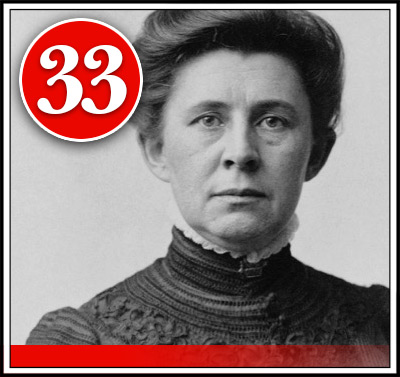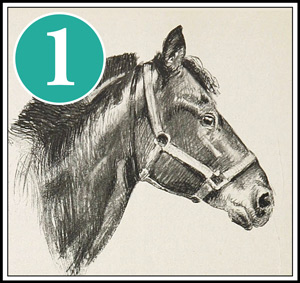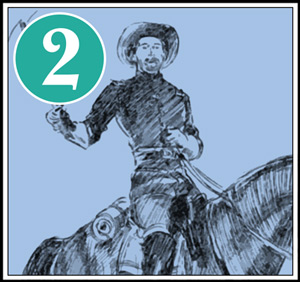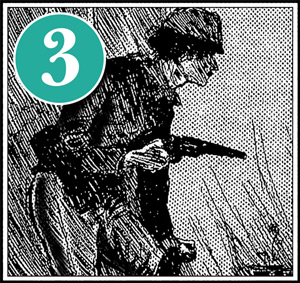
Disbanding the Union Army, part 1
Episode 33
Great numbers of them had gone into the army boys and had been made men by danger and suffering.
Podcast: Play in new window | Download
Subscribe: Apple Podcasts | Email | TuneIn | RSS

Disbanding the Union Army, part 1
by Ida Tarbell
ON the first of April, 1865, a Federal army of over one million volunteer soldiers hemmed in the ten southeastern States of the present Union. It had taken four years for this army to stretch itself from the mouth of the Potomac westward to the Mississippi, southward to the Gulf, and thence along the coast to its start ing point. But at last the cordon was practically unbroken.
Not only had the Federals enclosed the Confederacy; by capturing and holding the Mississippi River and by fighting their way from Louisville southeastward, through Nashville and Atlanta to Savannah, they had separated it into three enormous divisions.
In all parts of the vast territory which they had engirdled and dismembered, there were armies and garrisons: Meade, with 130,000 men, besieged Lee in Petersburg; Sherman’s army of 121,000 men was waiting at Raleigh, North Carolina, for a battle with Joe Johnston; Thomas, who commanded the 139,000 men in the Department of the Cumberland, was engaged in clearing the States in his division of the few Confederates remaining from the defeat of Hood in January; Canby, with some 122,000 men, held the Mississippi from Memphis to New Orleans, and opposed Dick Taylor’s army then in Alabama.
There were forces in Texas and Arkansas, in the forts and outposts along the captured lines, holding towns, guarding hospitals, car ing for prisoners and freedmen. So long had it taken the Federals to accomplish this work that even now, in spite of the positions they held, and their vastly superior forces—the million volunteers of April, 1865, were opposed by less than 200,000 Confederates—there was in their ranks no general belief in speedy victory. They had heard so many times that the “back of the Rebellion was broken,” that they had almost ceased to expect an end to the war.
That their skepticism hinged on their respect for the ability of a single one of the leaders opposing them—General Robert E. Lee—is evident from the effect produced on them by the news that, on April 9th, Lee had surrendered his army to Grant.
“The war is over,” was the universal chorus of the volunteers. And they were right. Like a structure from which the keystone has been wrenched, the Confederate army fell apart. Two weeks after Lee surrendered his force at Appomattox, Joe Johnston surrendered to Sherman. On May 4th, Dick Taylor sur rendered to General Canby in Alabama, and on May 26th, the forces west of the Mississippi commanded by Kirby Smith were sur rendered to the Federal authorities, Smith fleeing to Mexico.
In six weeks all the organized forces of the Confederacy had laid down their arms, and the great majority of the men had given their parole not to take them up against the United States until properly exchanged. The army of a million volunteers had finished its work.
Almost the first thought of the Federal War Department, when the news of Lee’s surrender reached it, had been, “Now we can disband the armies,”—a thought followed immediately by the question, “How can it be done?”
The question was one to tax the foresight, the experience, the energy of even Secretary Stanton, great as was his skill in handling bodies of men. If one will consider the army as it lay in April, 1865, scattered from the Gulf to the Ohio, from Texas to Virginia; and remember its number, 1,034,064 men, he will see that the problem of the prompt transportation of such a force north was most serious.
An element complicated the problem which does not appear on its face. If each body of soldiers in the field had been from one part of the North—that is, if Sherman’s army had been made up of New Englanders; Thomas’s, of New Yorkers, etc., the difficulty of disbanding would have been less; but the armies were not made up in that methodical way.
Sherman’s army in April, 1865, was formed of six army corps, besides cavalry. In the 15th and 17th corps, eight States were represented; in the 10th corps, nine States; in the 20th, ten; in the 14th and 23d, eleven. In the entire army, seventeen. In all the armies there was the same wide State representation. The War Department thus had to break up each army, select from it the men from Maine, from Ohio, from Illinois, and arrange that each of these fragments be sent on its way.
It was obliged, too, to do more than get the troops home. On their way North it must hold them long enough to secure the army history of each man, and it proposed to do this in such a way that he would have no legitimate reason for complaint. Moreover, it proposed that when at last it did set him down at his own door it should be with money in his pocket and good-will toward the government in his heart.
It was a bewildering problem, but Mr. Stanton attacked it with his usual volcanic energy. Summoning General Thomas M. Vincent, the Assistant Adjutant-General, who had in charge the organization of the volunteer forces, he asked him for a plan to suit the case. A few days later General Vincent presented a method he believed feasible. It was discussed for an hour and a half by the Secretary, and finally dismissed by his saying: “Send the method to General Grant, and if approved by him issue the order.” The notes were sent to Grant, who returned them with the brief comment, “Plans and suggestions within approved.”
To one who reads General Vincent’s plan today it looks so simple compared with the task on hand that it seems hardly worth considering, yet it was that plan which moved the army. It provided, simply, that the army organizations be kept intact and the troops sent to convenient rendezvous.
There the men were to go into camp until muster-rolls and pay-rolls had been made out, when they were to be sent by boat and rail to their various States, where they were to be paid off and dismissed. Its vital feature was the provision that the work of disbandment be carried on by an organization already in existence: the mighty machine which had been devised for getting men from their homes into the army was to be used now for returning them. The officers who had become experts in mustering in men were now to muster them out. The transportation facilities which had taken the men south were to be devoted to taking them north.
As soon as the scheme had been approved, the first of a long series of orders reducing the army was issued. In rapid succession they followed each other. Recruits, patients in hospitals, officers and men whose terms expired before May 31st, the troops with Meade and Sherman whose terms expired before September 30th were to be disbanded. Order after order, calling the men from the field, had been issued before the last hostile force had surrendered on May 26th.
In response to these orders the bulldog grip which the Union forces had so long had on the South now loosened. The men released by each successive decree began at once to move out from the points in the East or West where they were stationed to the rendezvous selected for them: men from the armies of Meade and Sherman to Washington; from that of Thomas, to Nashville or Louisville; from that of Canby, to New Orleans, Vicksburg, or Mobile. All over the vast area a movement northward towards the rendezvous was immediately perceptible.
The suddenness with which the soldiers were faced about, before the fact that the war was over was clearly in their heads, and marched for home with as much despatch as if they were going into battle, produced at first throughout the armies a feeling of bewilderment. The army disbanded! What did it mean? Why, nothing less than that they were out of work—their occupation gone! Soldiering had become their business. What were they going to do? Work on the farm had gone on in their absence. Their benches had been filled. Others were teaching their schools. And then there was a large element who had no homes to go to; to whom a return North meant nothing but wandering until fortune offered something.
But it was not only the sense of being thrown adrift which affected the soldiers when the order for disbandment was first received. Four years of fighting, of defeat and victory, had hardened many of them into warriors, and they loved their trade. They might grumble at times, but the passion for danger and adventure had its hold upon them, and no man who has once learned to love war steps back to a civilian’s life with a whole heart.
Great numbers of them had gone into the army boys and had been made men by danger and suffering. Here they had for the first time faced big things—for the first time felt great emotions. They clung, as all men do, to that which has awakened their natures. It was not strange, then, that they at first should have felt something like regret.
But this wave of regret was everywhere brief. As soon as the men’s faces were set for the North there was a blaze of joyous emotion. They were going home. With every step, the old associations, the old scenes refilled their minds. Under the influence of this new phase of feeling, the armies marched to their rendezvous in incredibly short periods. Thus, Sher man’s army made the march of 156 miles from Raleigh to Richmond in five and one half days. “It seems as if the men cannot go fast enough,” was the general comment.
Considering the exuberance of the feeling, the marches were orderly. Rigid orders had been given the men concerning pillaging. Hitherto they had confiscated as a right of war, but the war was over now, and no soldier hereafter had a right to a chicken or a loaf of bread for which he did not pay. This restriction came particularly hard on those troops who had been “living off the country.” It was, perhaps, requiring too much of human nature to expect they should not now and then break ranks and have a riot of chicken-stealing and house-breaking.
Their punishment, if caught, was always severe and humiliating. They were labeled “pillagers,” and tied to a fence by which the whole army marched, jeering and deriding. Happily there were but rare outbreaks of this kind, and none of them very grave.
The occasional disorders were more than compensated for by the real sympathy the men showed for the poverty and suffering they found all along their march. They constantly met half-starved, half-clad Confederate soldiers, painfully making their way to their homes—sometimes alone, often in groups of two or three. Not infrequently they found a worn-out man dying by the road side. With these men the Federal troops fraternized in the most kindly way, sharing their rations with them, bespeaking horses for them from the quartermaster, often tak ing their addresses, and promising them help when they returned north.
As the troops reached the centers around which the hardest and longest struggles had been waged—Vicksburg, Chattanooga, Richmond—their excitement and interest arose to the highest pitch. They encountered at these places the troops who were being held for further duty, and at once fell to exchanging experiences. For a full account of the march to the sea, the soldier of the Army of the Potomac, left at Richmond, conducted his comrade from Sherman’s troops over the fortifications of Petersburg, through the shell battered town, to the crater, and down to City Point, so long Grant’s headquarters.
When Sherman’s army started from Richmond it marched out by the Hanover Court House road, but there divided into four columns, one taking a route by Chilesburg, another by Culpeper and Manassas, a third by Chancel lorsville, and the fourth by Fredericksburg.
By this distribution the army covered almost every battlefield of Northern Virginia. The entire force was completely engrossed in sight-seeing, the interest beginning with General Sherman himself, who, in his eager desire to see and know all possible of the campaign of the Army of the Potomac, shifted from column to column, visiting, en route, Spottsylvania, Fredericksburg, Dumfries, and other fields. The war was over, and already the day of reminiscences had opened.
The first large bodies of troops to reach a rendezvous were Meade’s and Sherman’s armies, both of which, by May 20th, were en camped along the Potomac, opposite Washington, most of them within sight of the dome of the capitol. In all the two armies numbered 200,000 men, brought from the field since the surrender of Lee.
The second step in the disbandment was the preparation of muster-out and pay-rolls. Just what this entailed only those who have examined the rolls can realize. On them every man’s army history had to be registered; his rank and age, when and where and by whom he was enrolled, when and where and by whom mustered in, when last paid and to what time, how far he had traveled, what subsistence and forage he had furnished, what equipment and clothing he had received, his absences, special duties, promotions, wounds, illnesses—an array of figures, dates, and facts upon whose accuracy all the future relations of that man with the War Department must be regulated.
The mere printing of the blanks of these rolls and of the discharge papers for the men was keeping the government printing-presses busy night and day, while filling them meant work for hundreds of officers and clerks. Everything was ready for this work when Sherman and Meade reached their rendez vous, and headquarters were at once established and the rolls started.
The delay necessary to making out the rolls caused everywhere a percentage of trouble. Why he could not be disbanded at once many a volunteer could not understand. The war was over and he wanted to go home. Why not let him go there from Vicksburg, Louisville, Washington? Why all this “fuss and feathers?”
The “free-born American,” who, at the beginning of the war, could not understand why one should not say “hello” to the colonel, now refused to see any reason why ranks should not be broken on the spot. This spirit showed itself now and then in small mutinies. Castle Thunder, in Richmond, and Old Capitol Prison, in Washington, were full most of the summer of 1865, of men who had made up their minds to do their own disbanding, but had been restrained at the point of the bayonet.
The men were kept in order by regular drilling and by many reviews. The greatest of these was a Grand Review ordered by Mr. Stanton while Sherman and Meade’s armies were waiting around Washington.
The Secretary of War wished the President, the Cabinet, Congress, the country, to see what an army meant, and ordered that Meade’s army on May 23d and Sherman’s on the 24th pass in review before the members of the administration. The pageant was by far the noblest this land has ever seen. It was not the glitter of the thousands of bayonets and sabres and polished brass cannon which made it so, not the hundreds of battle-flags and banners in line, not the splendid gathering of generals who had distinguished themselves in the war –Meade, Sherman, Custer, Crooks, Miles, Howard, Logan, Blair, Buell; it was the men in ranks who, for six hours on one day, seven on the other, passed sixty abreast in “cadence step” through the wide Washington avenues.
The great throng which had gathered in Washington to witness the review sat as if spell-bound watching hour after hour these great blue masses passing as steadily and rhythmically as an ocean tide. Now and then men turned wondering dazed eyes to each other and asked, “Where did they all come from? Have we sent so many men to the front? Is it true that this is but one fifth of the army?”
With this surprise at the numbers came a deeper surprise—that an army looked like this. For four years they had been seeing soldiers daily—bouyant lads, marching with shining eyes to the front, or crippled men crawling home to die—but soldiers like these they did not know.
These men were bronzed and stern and indifferent. The spectators felt almost a terror in watching the ranks, so irresistible seemed their power, so mighty their will. This, then, was what Lincoln meant when he talked to them of “veterans.” This was the kind of men war made of their bright-faced boys.
The effect of the Grand Review on the people of the country was deeper than Mr. Stanton ever had dreamed. They saw at last the quality of the men the war had called out, and, though they shuddered at what the tattered banners recalled, and wept as they realized how often the serried regiments had been cut to fragments and refilled, they carried away a great thankfulness.
They saw now why the young Republic had been able to grapple successfully with the most dangerous enemy a country can have—an evil within. If the belief that a great principle was in danger could raise up such a body of men as this, then government by the people was no longer an experiment.
For the North the Grand Review was a benediction on the Civil War.
• • • • • • • • • • • • • • • • • • • • • • • • • • • • • •
By subscribing, you will automatically receive the latest episodes downloaded to your computer or portable device. Select your preferred subscription method above.
To subscribe via a different application: Go to your favorite podcast application or news reader and enter this URL: https://clearwaterpress.com/byline/feed/podcast/



